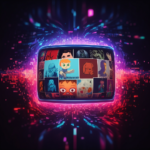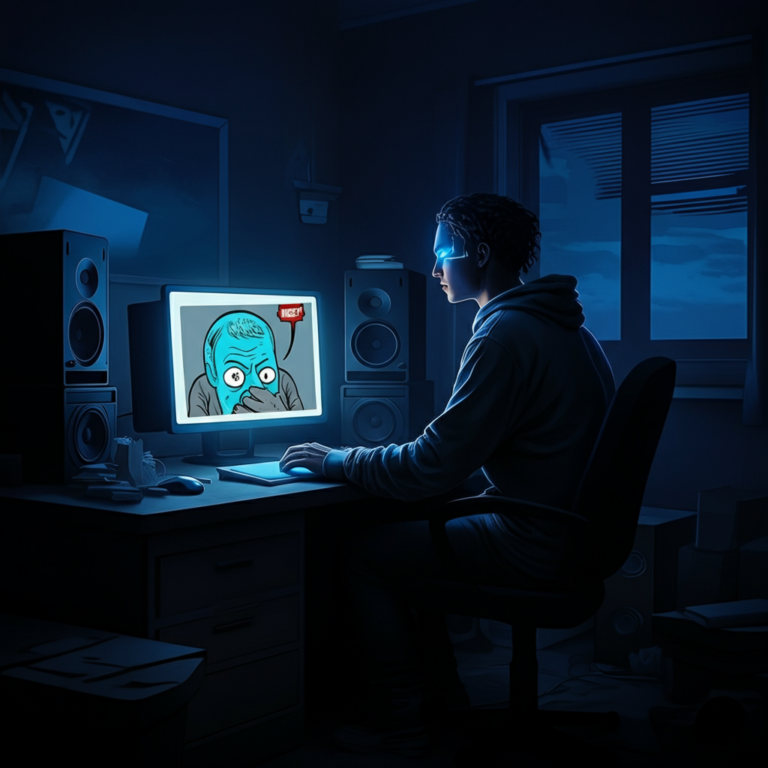Memes have become a universal language in the digital era. They bring people together, brighten gloomy days, and address serious issues with a lighter, approachable tone. But as harmless as they often seem, memes can sometimes cross lines, veering into insensitive or even harmful territory. This blog dives into the darker side of memes, exploring the blurred boundaries of humor, responsibility, and the impact they can have when they go too far.
Why Are Memes Such a Powerful Tool?
Before highlighting their darker side, it’s crucial to understand why memes hold such sway in today’s culture.
Memes are much more than just funny pictures or videos—they’re bite-sized cultural phenomena that spread like wildfire across social platforms. Their appeal lies in their ability to distill ideas, emotions, and social commentary into something relatable and engaging. Whether it’s a playful pun or commentary on current events, memes resonate because they mirror society’s values, struggles, and joys.
Additionally, memes thrive on humor. Laughter is a universal bridge, breaking barriers and fostering connections. However, this very strength—making people laugh—is what makes it all the more concerning when humor is weaponized or used irresponsibly.
When Humor Becomes a Double-Edged Sword
While many memes are created with good intentions, others can be hurtful when they:
- Perpetuate stereotypes
- Make light of sensitive issues like mental health or abuse
- Legitimize discrimination under the guise of humor
Let’s examine examples of humor crossing the line:
1. Promoting Harmful Stereotypes
Memes that lean on racial, cultural, or gender-based stereotypes can reinforce harmful biases. For instance, certain memes poke fun at ethnic accents or cultural practices, normalizing prejudice under the cloak of harmless humor. Those consuming such content may internalize these biases, contributing to systemic stereotyping.
2. Trivializing Serious Topics
Mental health, violence, or abuse are sometimes turned into memes that trivialize their seriousness. A widely circulated meme might make light of anxiety or depression, dismissing the profound struggles people face.
For example, while phrases like “LOL, I’m so anxious I cry at everything” may strike some as relatable, they risk minimizing the genuine challenges faced by individuals dealing with disorders.
3. Encouraging Cyberbullying
Memes sometimes target specific individuals—whether public figures or regular people caught in viral moments. While these memes might seem innocent or funny at first, they often lead to ridicule or harassment on a larger scale, exposing their subjects to undue scrutiny or mental distress. What begins as a “joke” can spiral into toxic online behavior.
4. Exploiting Tragedies
There’s a fine line between using humor to cope with difficult events and capitalizing on them. Memes that exploit natural disasters, tragedies, or global crises for shock value or likes often come across as tasteless. They risk alienating audiences and offending those directly impacted.
Why Do Memes Cross the Line?
Understanding why memes sometimes veer into offensive territory is key to addressing the problem. There are several reasons this might happen:
- Anonymity of the Internet: Online platforms often provide anonymity, allowing individuals to spread controversial or harmful memes without fear of repercussion.
- Virality Over Values: Many meme creators prioritize content going viral over ensuring it’s respectful or responsible, leading to anything-goes humor.
- Misjudging the Audience: What seems funny to one group may cross the line for another, highlighting the challenge of memes catering to an incredibly diverse global audience.
These factors create an environment where offensive content can thrive unchecked, making it crucial to address these issues head-on.
The Real-World Impact of Harmful Memes
“Hurtful memes are just jokes—people need to lighten up!” is a common defense. However, the impact of such content goes far beyond harmless laughter.
1. Normalization of Harmful Behaviors or Ideas
Memes can perpetuate harmful behavior when shared widely enough, especially among young, impressionable audiences. For example, normalizing fat-shaming memes may subtly encourage discrimination against people based on their body types.
2. Psychological Impact
The subjects of targeted memes often face significant online harassment. This can result in feelings of humiliation, stress, or even severe mental health issues like anxiety and depression.
3. Damaged Reputations or Careers
Some memes use compromising content or old photos of real individuals. Even after the initial virality wears off, the damage to their reputation and professional opportunities can persist.
4. Divisions Within Communities
Insensitive memes can polarize audiences, creating divisions rather than fostering understanding or unity. Topics like religion, ethnicity, or national identity can spark intense debates or even hostility when approached disrespectfully.
What Role Do Content Creators Play?
Content creators have an opportunity—and a responsibility—to ensure memes remain a tool for connection rather than division. They can:
- Embrace ethical humor, steering clear of content that could harm individuals or communities.
- Use their platforms to challenge harmful memes, encouraging more nuanced and thoughtful discussions.
- Educate audiences on sensitive issues to foster empathy rather than perpetuating ignorance.
When done right, memes can inform and entertain without causing harm.
How Can Viewers Consume Memes Responsibly?
Audiences also bear responsibility. Engaging thoughtfully makes a difference in keeping the internet a positive space. Here’s how:
- Think Before Sharing: Pause to evaluate if a meme might be offensive or hurtful to someone else.
- Call Out Harmful Content: When a meme crosses the line, speak up. Flag or report content that promotes hate, harassment, or misinformation.
- Support Positive Creators: Follow and share content from ethical, responsible creators who balance humor with mindfulness.
The Bright Side of Memes
The dark side of memes does not diminish their incredible potential as a force for good. Memes can break down barriers, prompt social change, and even provide comfort during difficult times. They hold the power to unite people from different walks of life under a shared understanding of humor.
When used thoughtfully, memes remain one of the internet’s greatest offerings—a testament to creativity, reliability, and human connection.
Staying Mindful in Our Meme Culture
The next time you share a meme, pause to reflect on its impact. Is it poking fun at power structures or punching down at vulnerable groups? Does it spread laughter at someone else’s expense? Responsible humor uplifts us all without silencing or hurting others.
Together, creators and audiences have the power to shape meme culture for the better—keeping it inclusive, joyful, and thought-provoking. After all, laughter is one of life’s simplest pleasures, and it’s always sweeter when shared responsibly.





















0 Comments